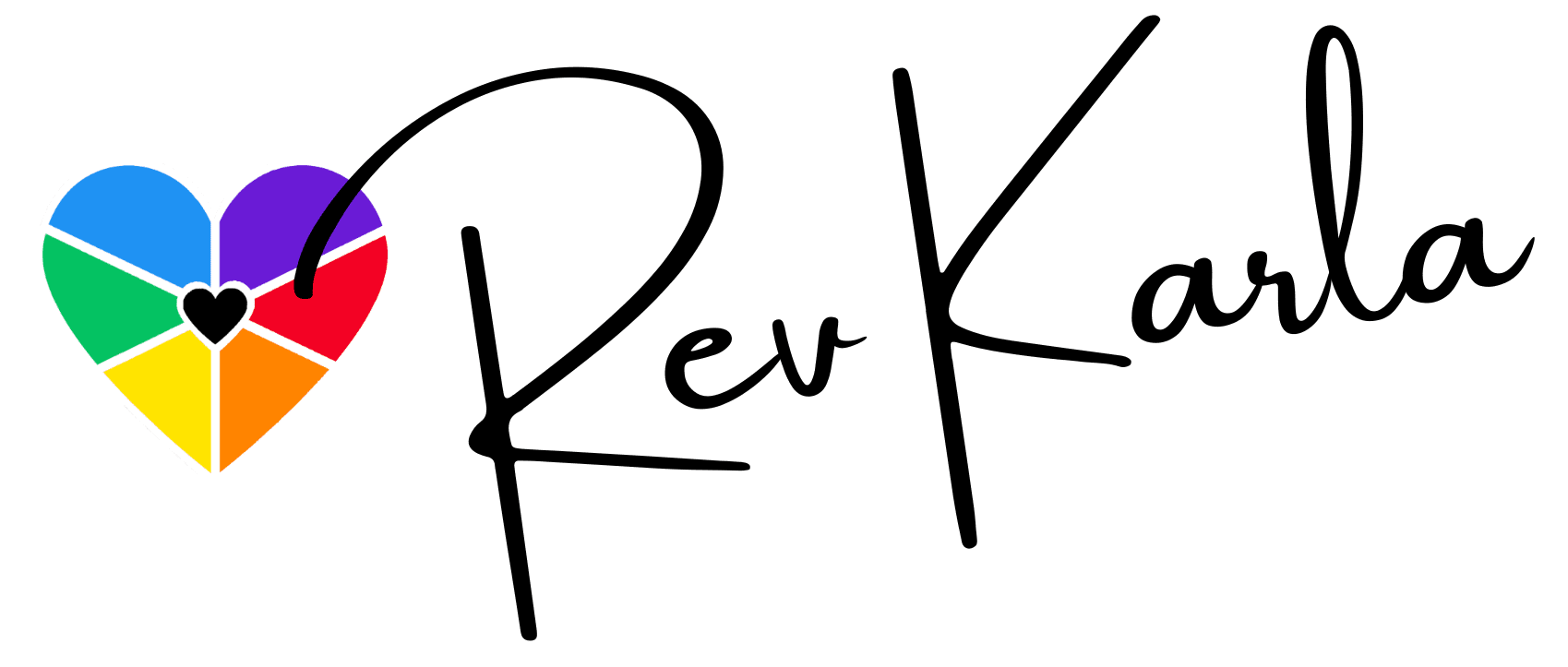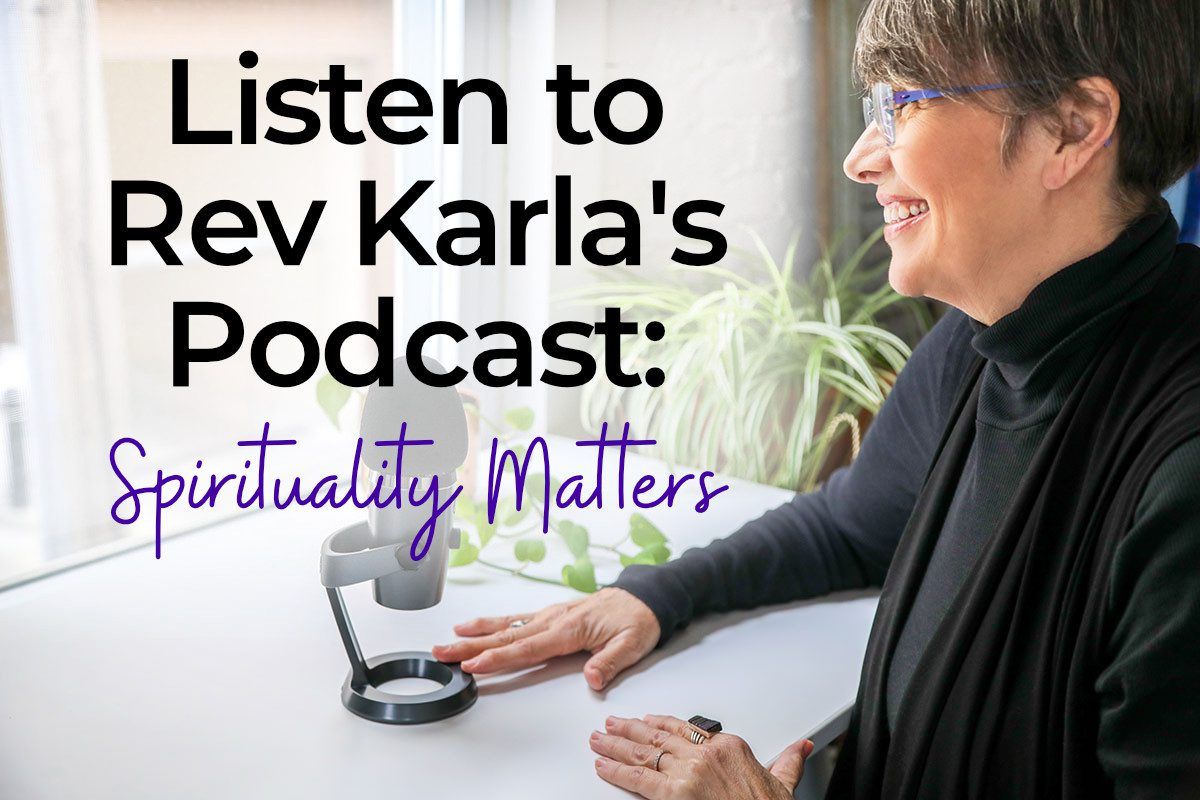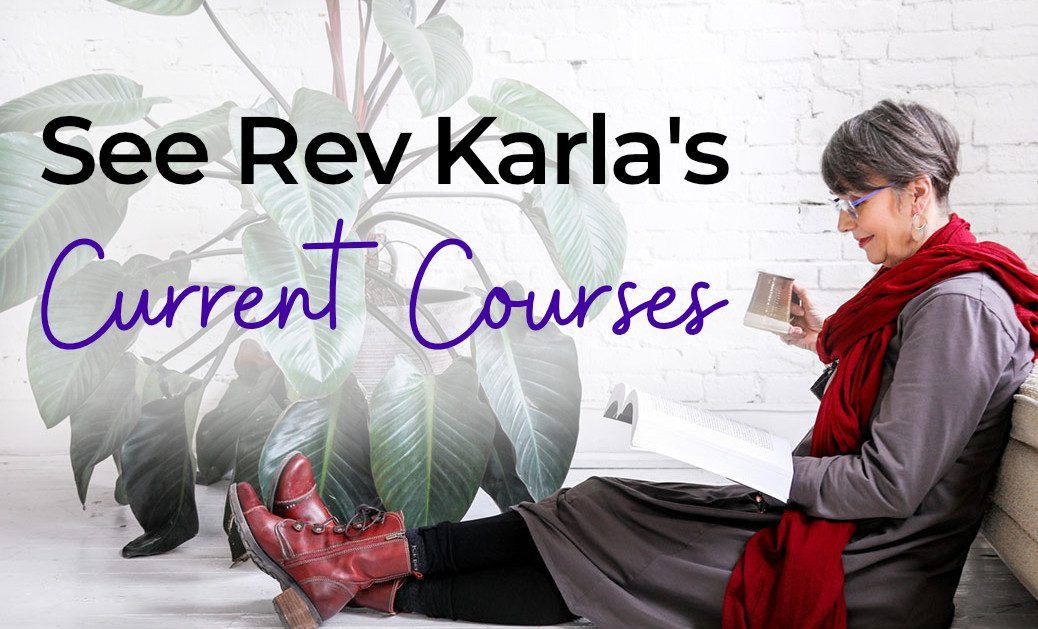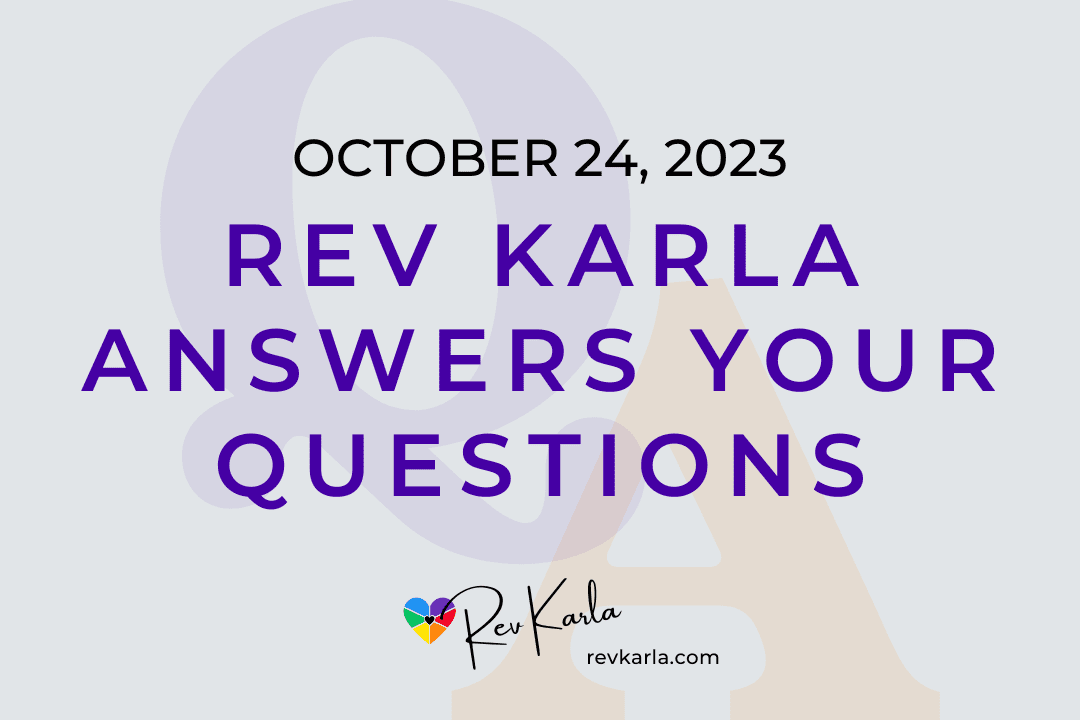
Unraveling Fear-Based Theology, Navigating Spiritual Identity, and Finding Community Amidst Deconstructing from Religion
Read Time: 6 minutes
In today’s blog, Rev Karla explores several questions related to the themes of religious indoctrination, deconstruction, and the struggle to find personal spiritual identity amidst societal and cultural expectations. This part #8 Q&A podcast/blog series continues as Rev Karla answers personal questions from her audience.
Finding Freedom from Apocalyptic Fear
Question #1: “Can you please talk about when people use an event like the wildfires and smoke to claim the scary apocalypse stuff and how do you finally free yourself from that?”
We begin our discussion by exploring the teachings of John Nelson Darby, a pioneer of end times or rapture theology. His writings fused fear-based doctrines with rapture beliefs, serving the goal of increasing church attendance. Rapture theology, which promises the ascent of saved individuals to heaven before end-time tribulations, deviates considerably from the genuine essence of the Book of Revelation.
The Book of Revelation, written during an era marked by the Roman Empire's brutal persecution of Jews and Christians, employs coded language to hide identities. It symbolizes hope, reassuring readers that oppressive regimes will eventually give way to change. Despite claims of biblical infallibility, rapture theology is a relatively recent interpretation, prompting the need for deconstruction and scholarly exploration.
Notable books by authors like Elaine Pagels, John Shelby Spong, Bart Ehrman, and Reza Aslan offer alternative perspectives and insights, encouraging us to question indoctrinated beliefs weaponized for control. You can find a full list of book recommendations on the website: revkarla.com. These books can help you understand there are several ways to understand scripture, and help you look through the lens of scholarly research to give you permission to pull back from some of those indoctrinated beliefs that may have been weaponized to control you.
Breaking Free from the Grasp of the Concept of Hell
Question #2: “How do you free yourself from the concept of hell?”
During this section, I share a story from my own childhood experience where the innocent act of digging in my front yard unearthed a profound fear—the fear of digging all the way to hell itself. It's a fear that many of us can relate to, especially those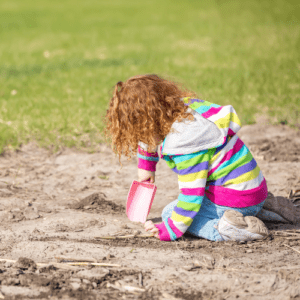 who grew up in environments heavily steeped in religious beliefs.
who grew up in environments heavily steeped in religious beliefs.
I vividly recall the moment when this deep-seated fear took hold. Just a few inches into the excavation, I was overwhelmed by a paralyzing terror, causing me to abandon digging and seek refuge indoors. This memory serves as a poignant example of how religious indoctrination can instill intense apprehension in young minds.
The concept of hell is often used as a tool for control and manipulation within religious circles. For valuable resources for deconstructing from this toxic theology, visit "The Bart Ehrman Blog," which is a rich source of research and insights into the origins of religious teachings related to suffering and damnation.
Deconstruction and the Craving for Community
Question #3: "In year four of deconstruction and doing much better, is it weird to still desire to be a part of a faith church community? Any ideas on moving forward?”
In the aftermath of religious deconstruction, it's entirely normal to yearn for a sense of belonging, even within a faith-based community. Many of us empathize with the grief that accompanies this journey—the loss of spiritual identity, connections, and the familiar sense of self. Grief is a natural companion on this path, gradually transforming into a source of strength and resilience.
While the wound may no longer be raw, the journey ahead involves embracing a new spirituality rooted in authentic living, personal morals, and values. It invites you to redefine your concept of community, even before the era of COVID, highlighting the significance of virtual communities as sacred and meaningful spaces where you can be your true self.
This is an opportunity for us to have a paradigm shift—an opportunity to assess our needs and seek out communities and individuals who resonate with our evolving beliefs. We have a Facebook group and other programs that offer safe spaces for this collective exploration with like-minded souls.
Remember, deconstruction is about breaking free from toxic influences and embracing new experiences, even if the allure of the familiar lingers. Allow yourself time and space to navigate this transformative journey at your own pace.
The Burden of Religious Guilt
Question #4: “Do you think most religious people feel guilty at all about their existence?”
Guilt, an emotion deeply intertwined with religious upbringing, is a significant aspect of many religious people's lives. From feeling guilty for the sacrifice of Jesus to the perpetual need to demonstrate loyalty, gratitude, and submission to their faith, guilt becomes like a comforting blanket, an integral part of their religious identity.
The doctrine of being born sinners adds another layer of guilt, resulting in a constant striving to do more, pray more, give more, and love Jesus more in a bid to be a "good Christian." The weaponization of Scripture often leads to judgment and condemnation of those who don't conform to their beliefs.
Deconstructing from this guilt-laden theology can itself evoke feelings of guilt as individuals realize the extent to which their beliefs are intertwined with this emotion. Shedding this guilt is a transformative process.
As for how religious people treat others, there's often a stark contrast. Many are taught to view themselves as morally and spiritually superior, belonging to an exclusive Christian club, while others are seen as inferior, deserving admonishment, control, and even oppression.
Freedom from religion, as perceived by some, means they have the right to express their beliefs while expecting others to conform. This oppressive mindset, as exemplified by certain public figures like Mike Pence, is deeply ingrained and unlikely to lead to feelings of guilt or remorse.
For additional resources here read John Shelby Spong: Why Christianity Must Change or Die.
Managing Deconstruction Amid Public Religious Expectations
Question #5: “What would you suggest someone do if they are deconstructing? Not fully sure where they will land yet still have to do Christian things for appearance, like pray in public or give devotionals?”
Deconstructing one's faith is a profound journey filled with uncertainty. The path forward is shrouded in mystery, and there's no predetermined destination. Embracing this spiritual wilderness is essential, allowing yourself to explore without constraints or timelines.
When it comes to appearing faithful while deconstructing internally, I share a story of my travels to a Buddhist temple in South Korea. During a ritual, some participants hesitated, while myself and others joined. It's a powerful example of how you can honor tradition without fully subscribing to it.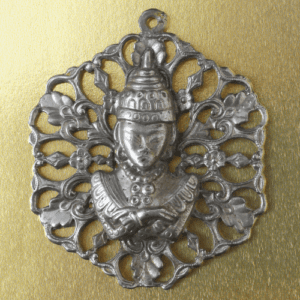
Maintaining your prayers or rituals for appearances doesn't mean abandoning your deconstruction. You can participate in them with an open heart and mind, recognizing their significance in your heritage. As your deconstruction journey progresses, you may find new meaning in these traditions or choose to modify them.
During public or corporate prayers, you don't have to conform to beliefs you no longer hold. Instead, focus on your inner dialogue, emphasizing love and the divine presence. This practice strengthens your resolve and teaches you to protect your inner peace, a valuable skill for navigating life's challenges.
Remember, your deconstruction journey is personal, and there's no rush to reach a fixed destination. Embrace the mystery, explore traditions with an open heart, and trust that wisdom and healing will unfold in due time. Be well on your journey.
*Rev Karla’s Book recommendations:
Looking to further your healing journey? Rev Karla understands that everyone’s spiritual journey is unique and deeply personal, that is why we offer communities for those desiring a safe and supportive environment.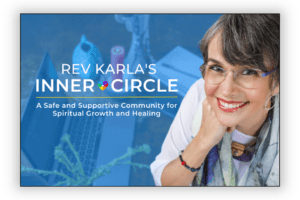 Engage with like-minded souls, and embark on a sacred journey of deconstruction, spiritual growth, and healing. Visit us online to join a community or Live event that speaks to you.
Engage with like-minded souls, and embark on a sacred journey of deconstruction, spiritual growth, and healing. Visit us online to join a community or Live event that speaks to you.
